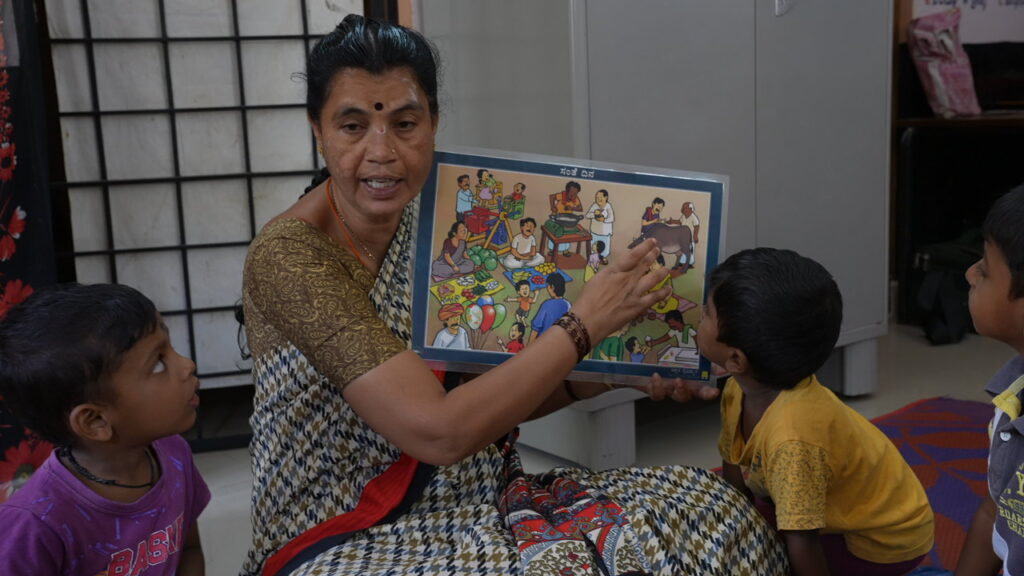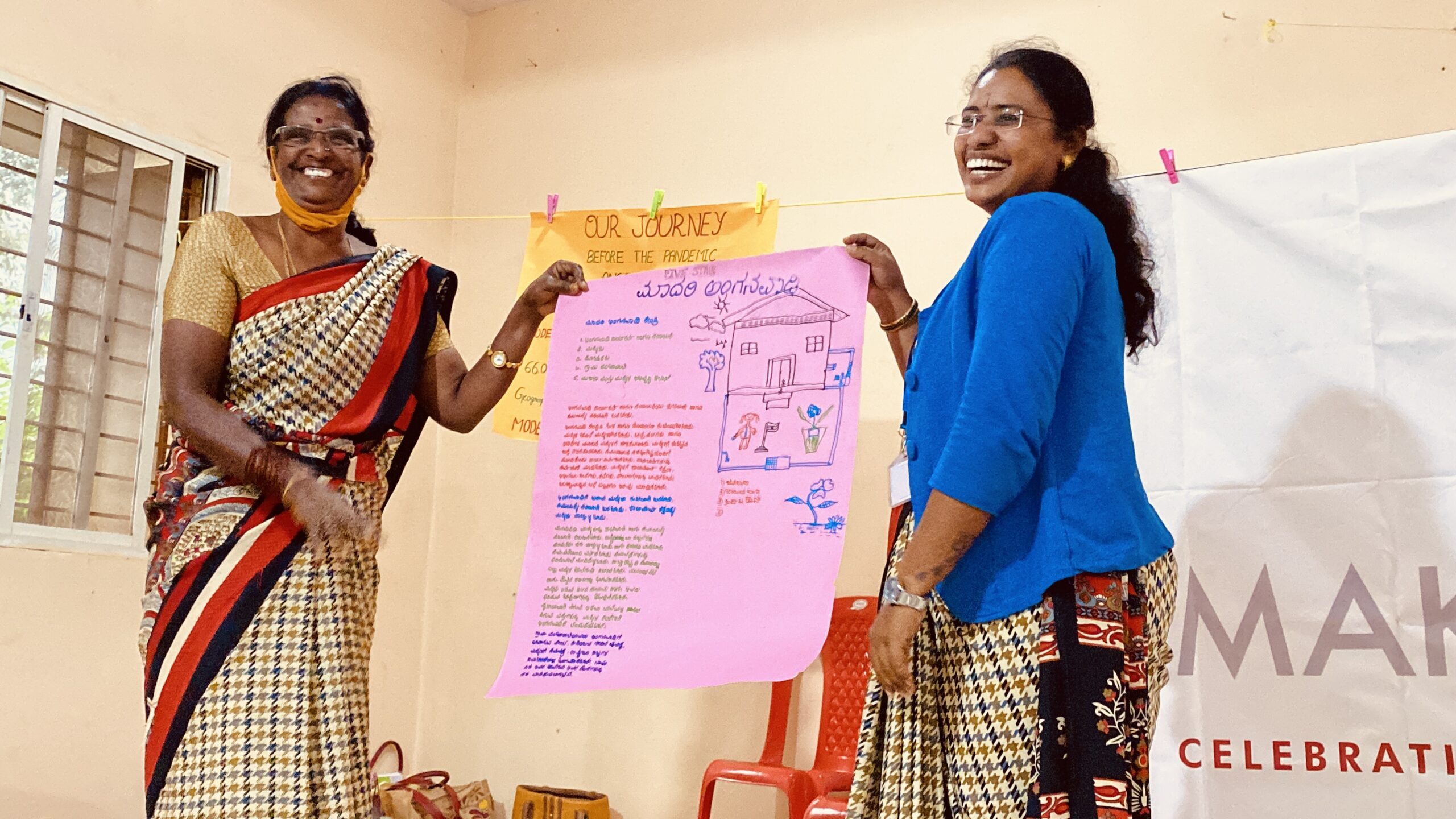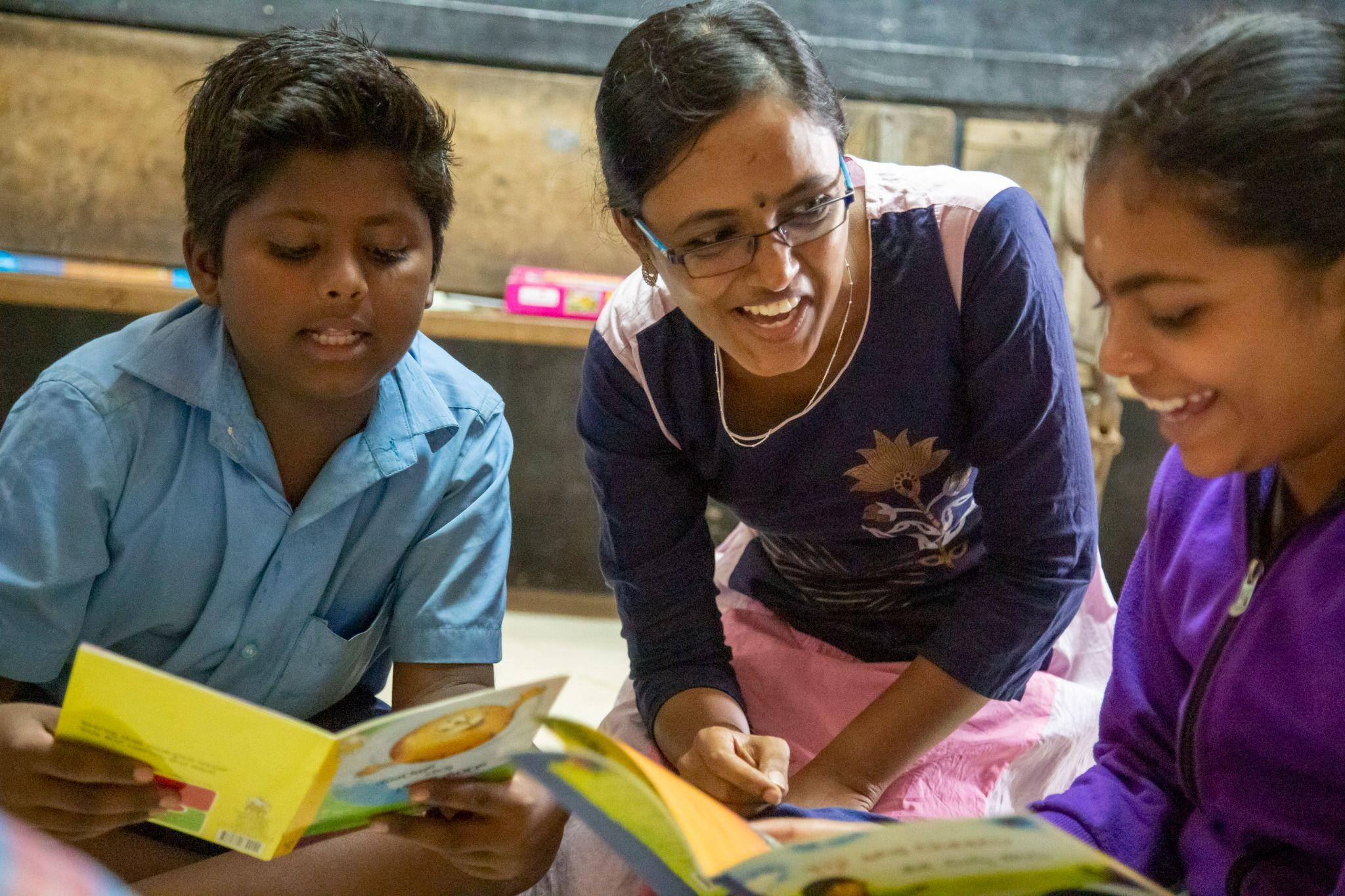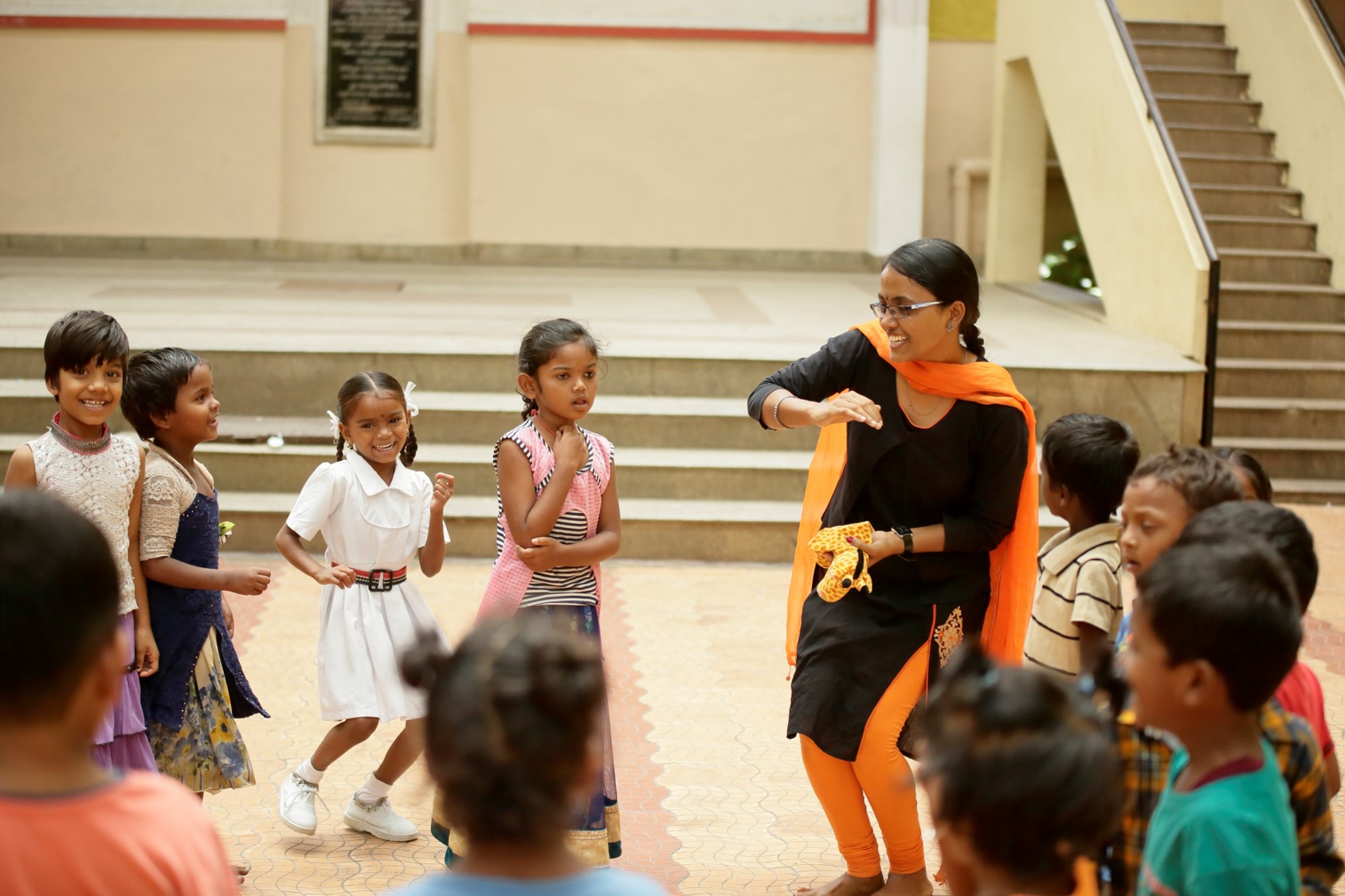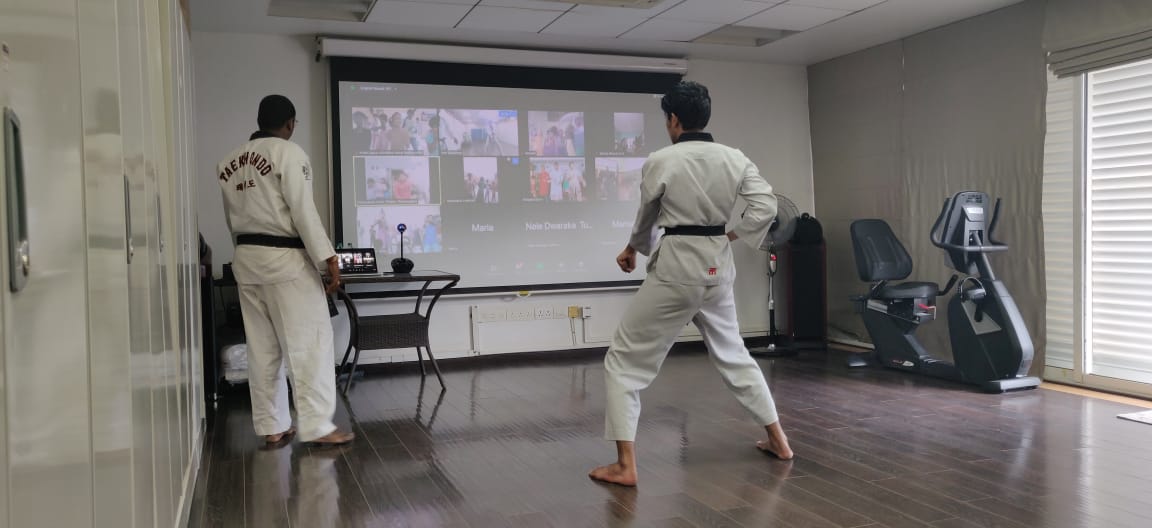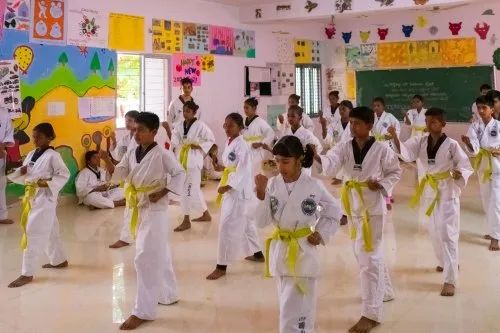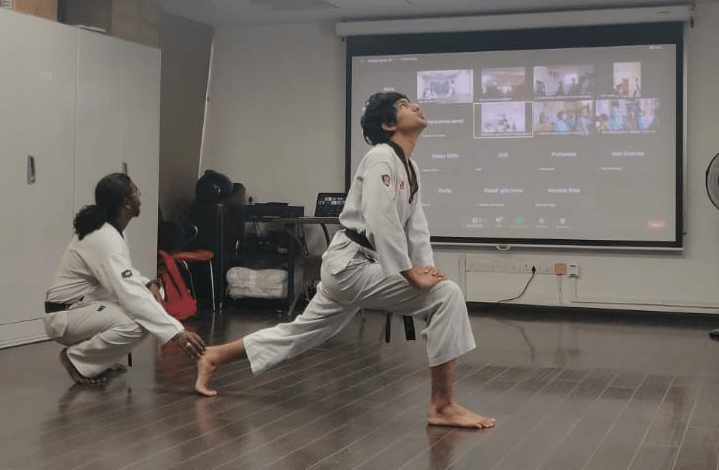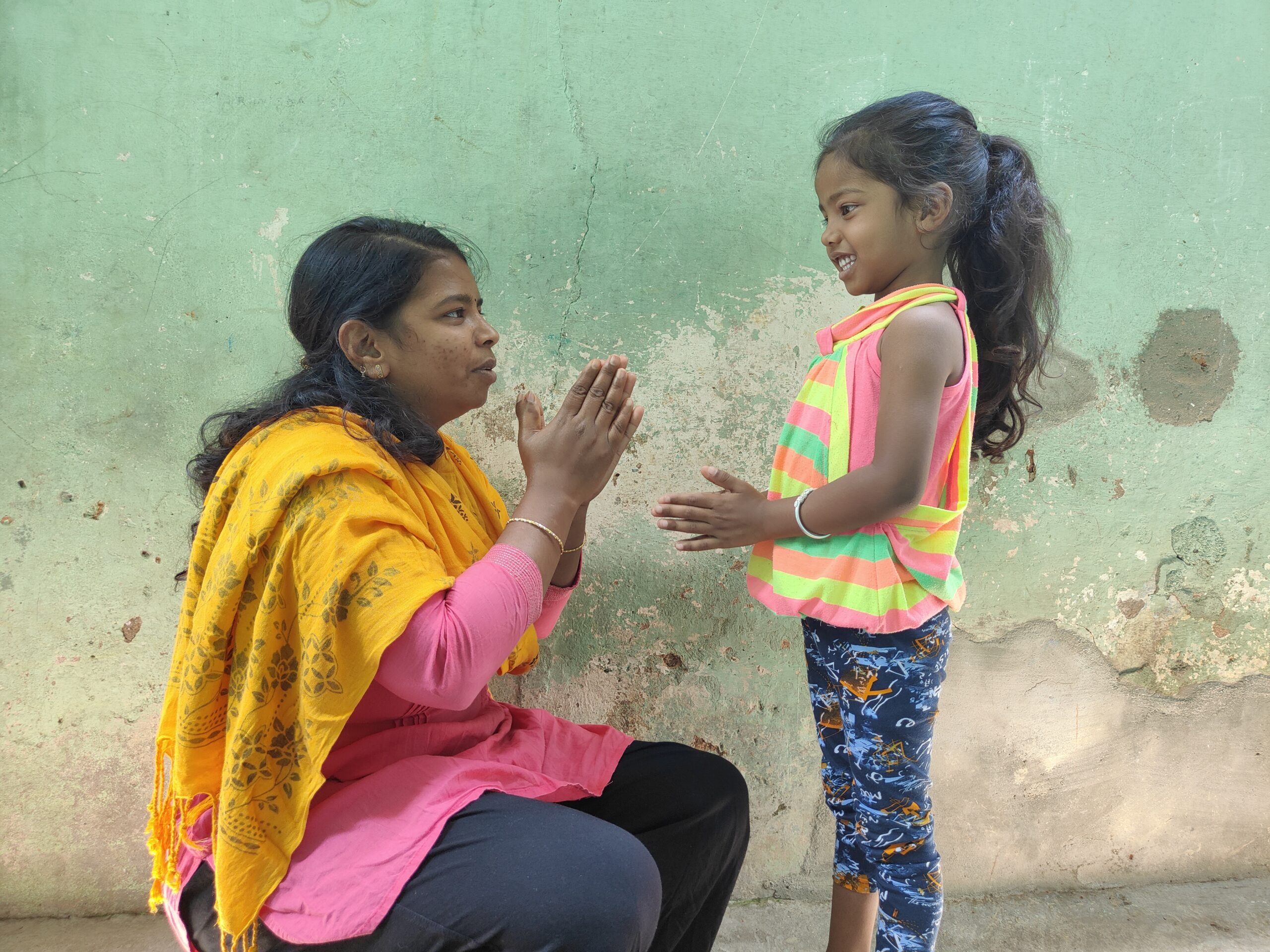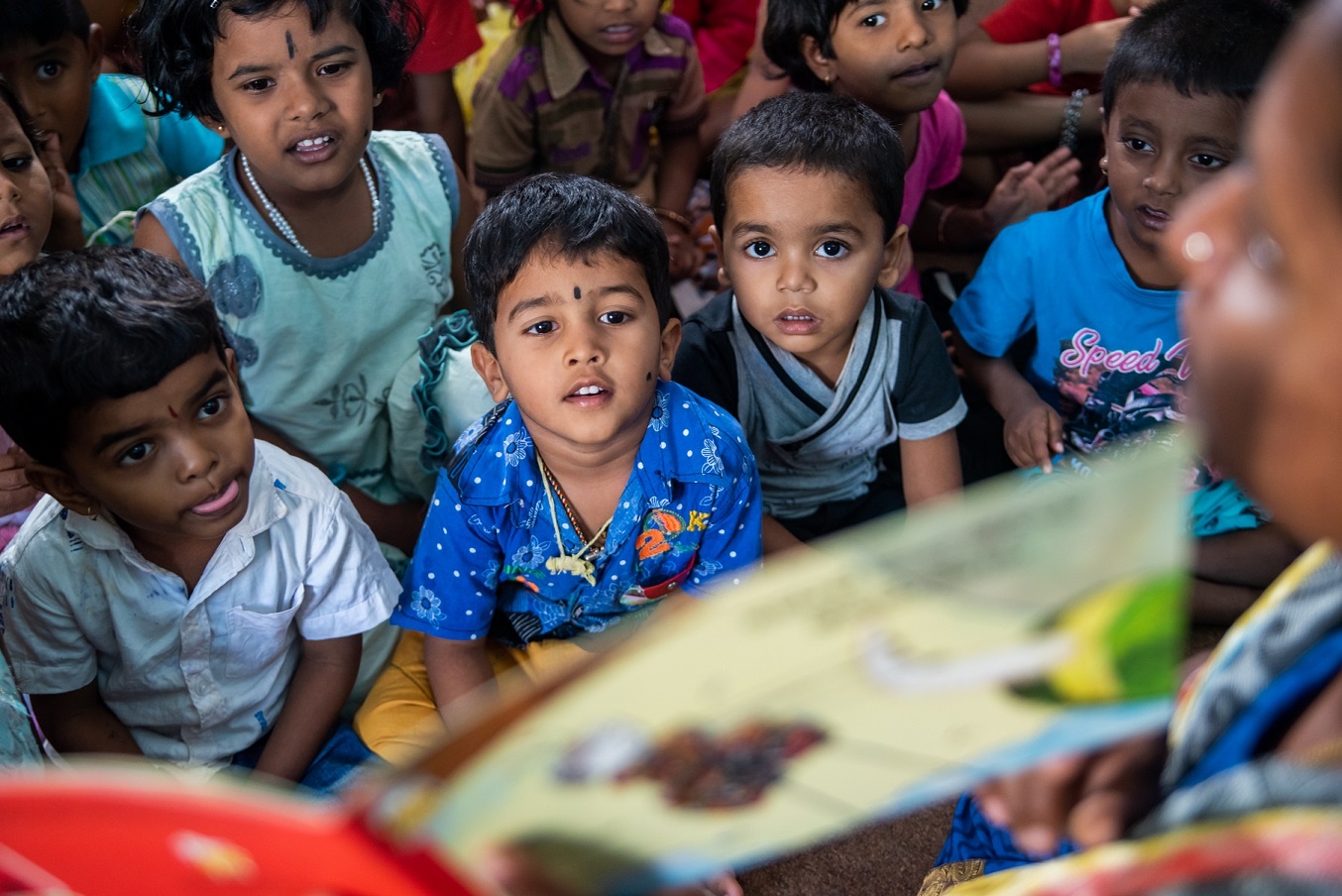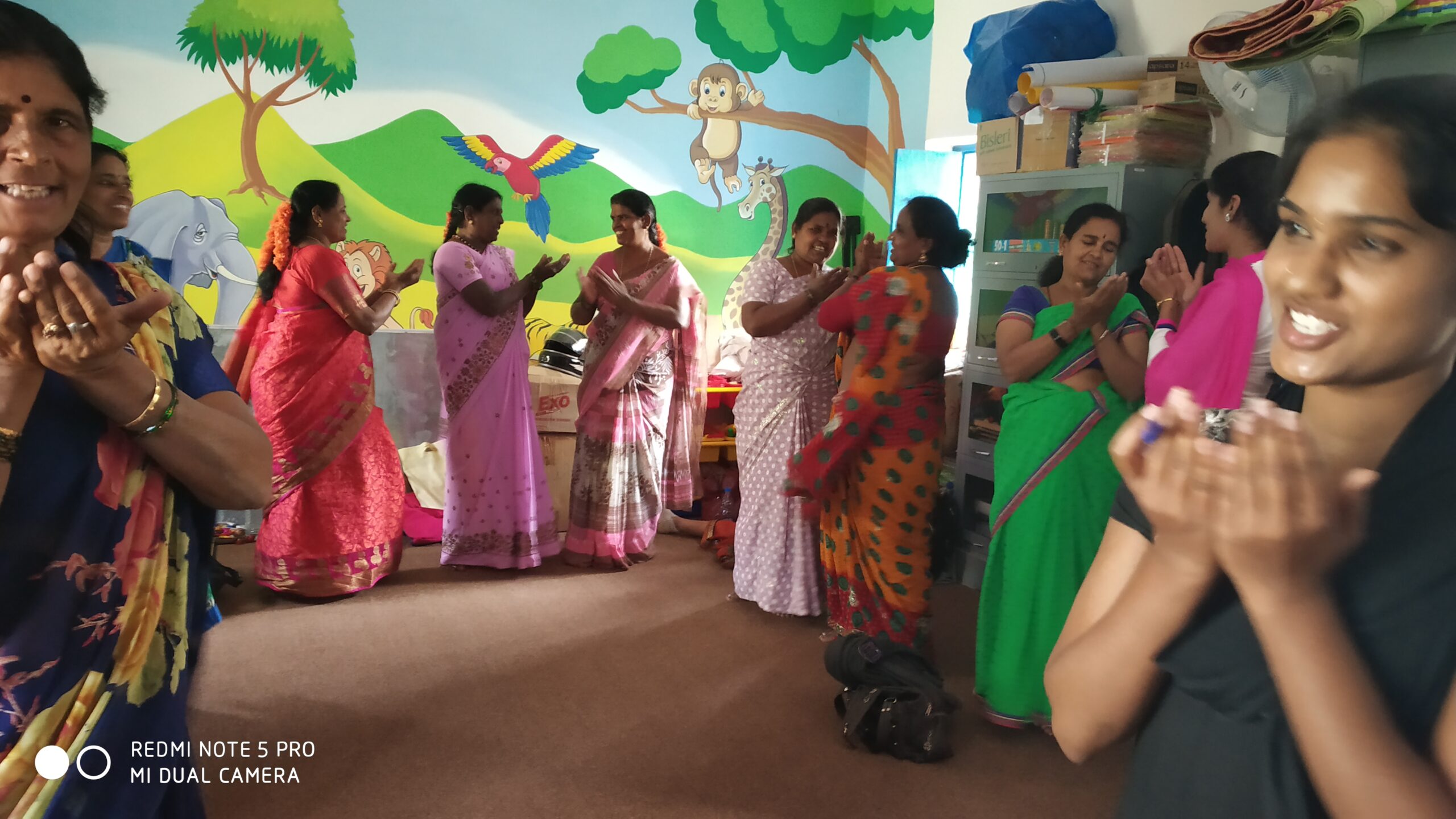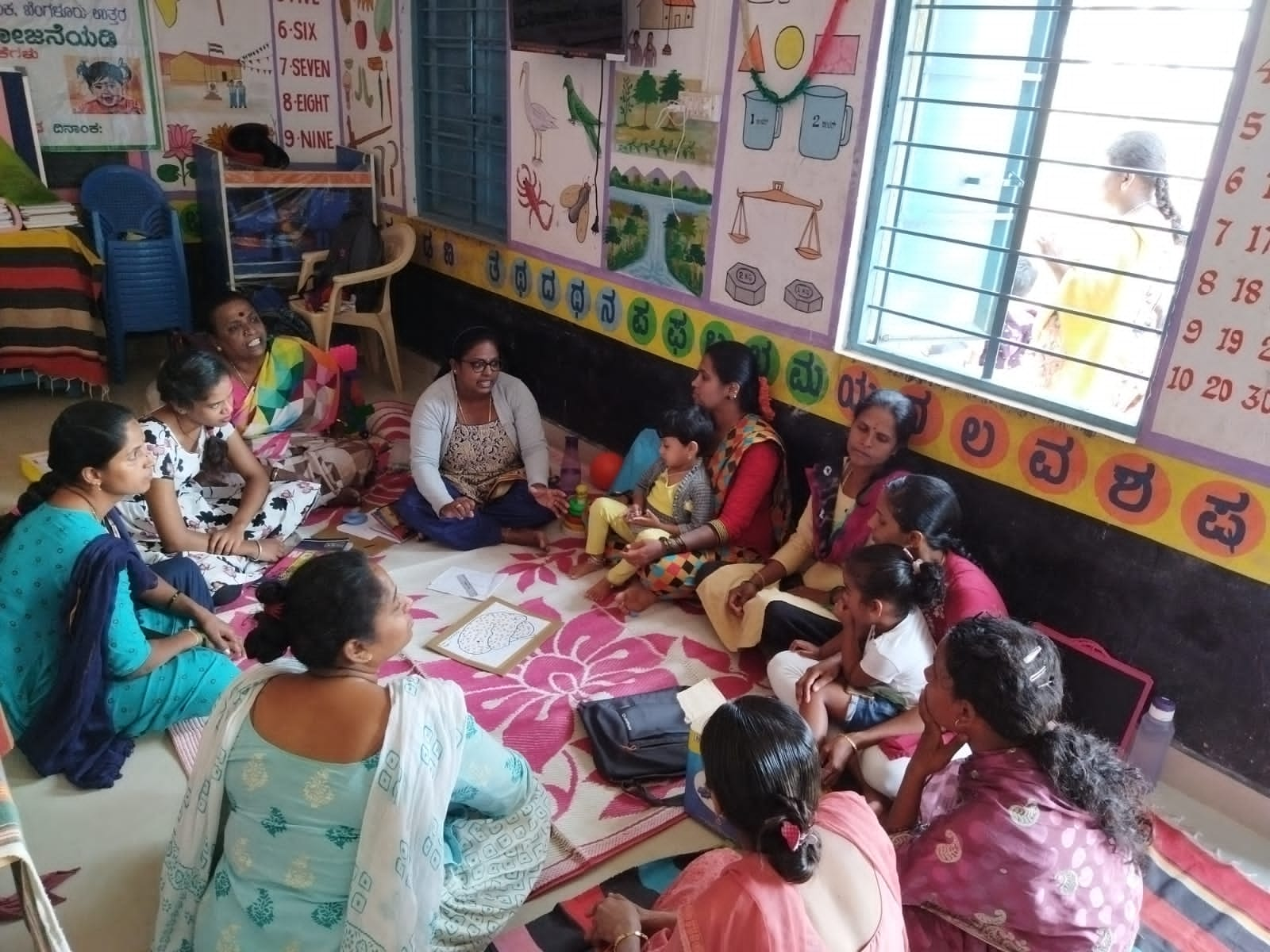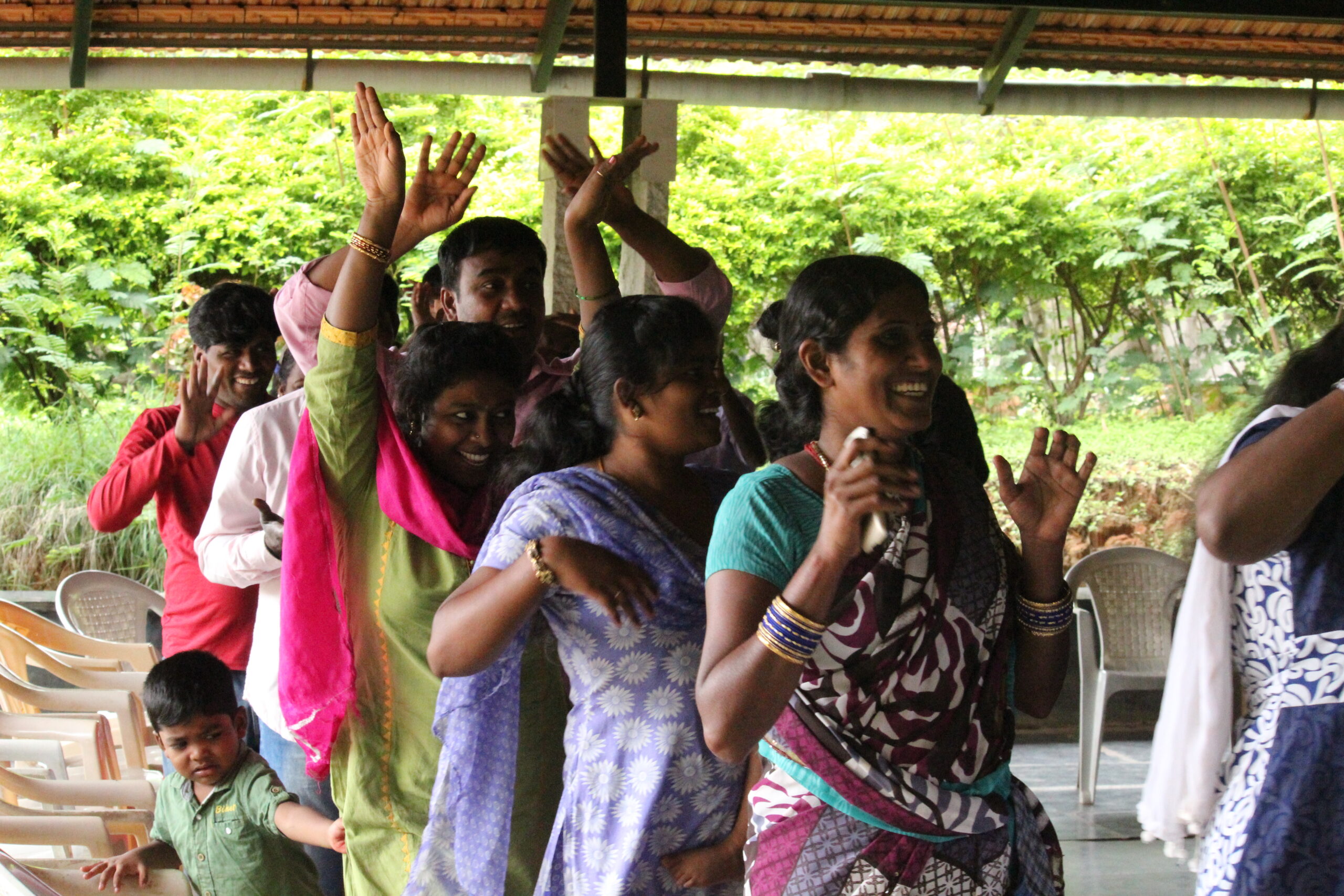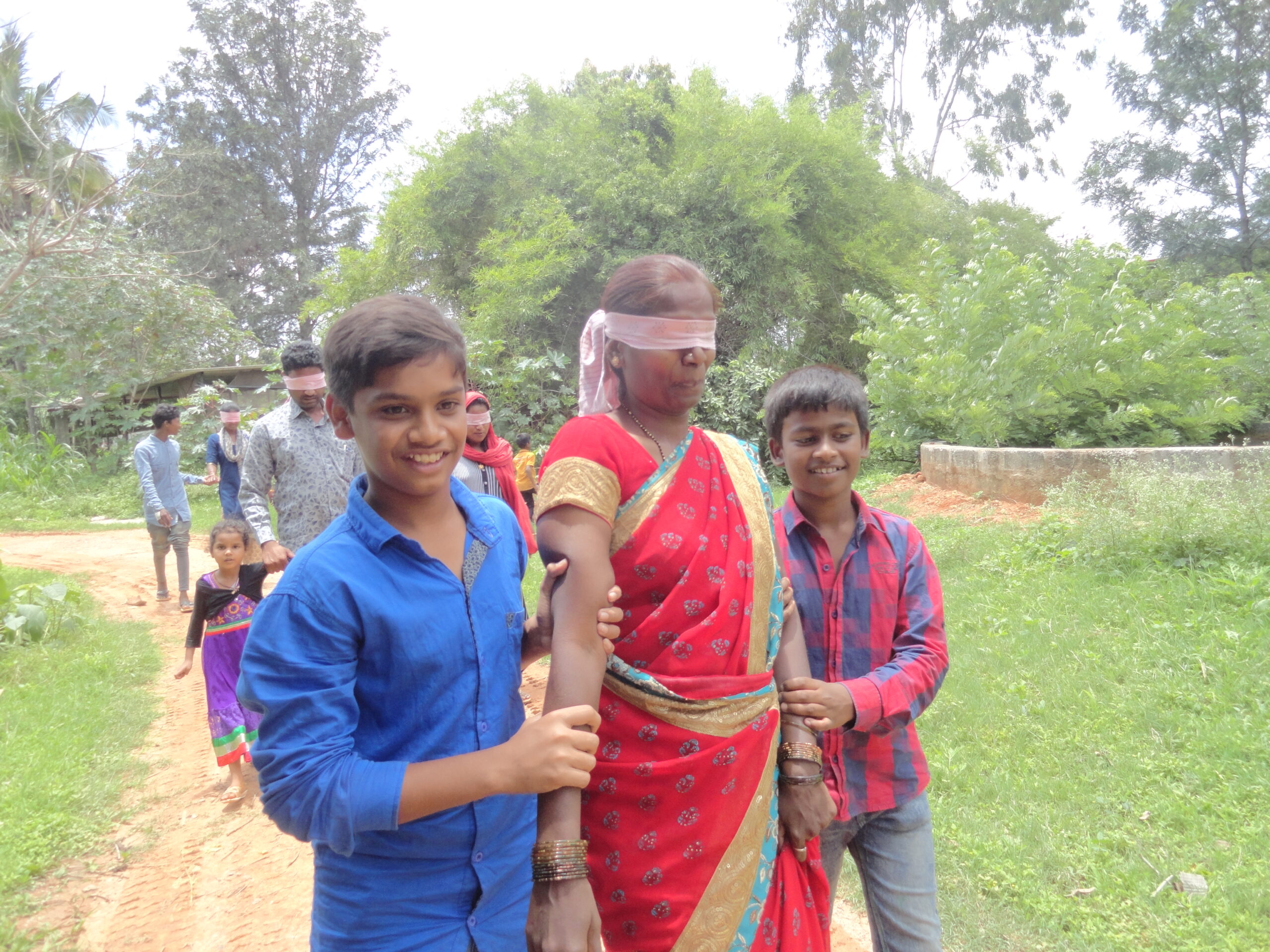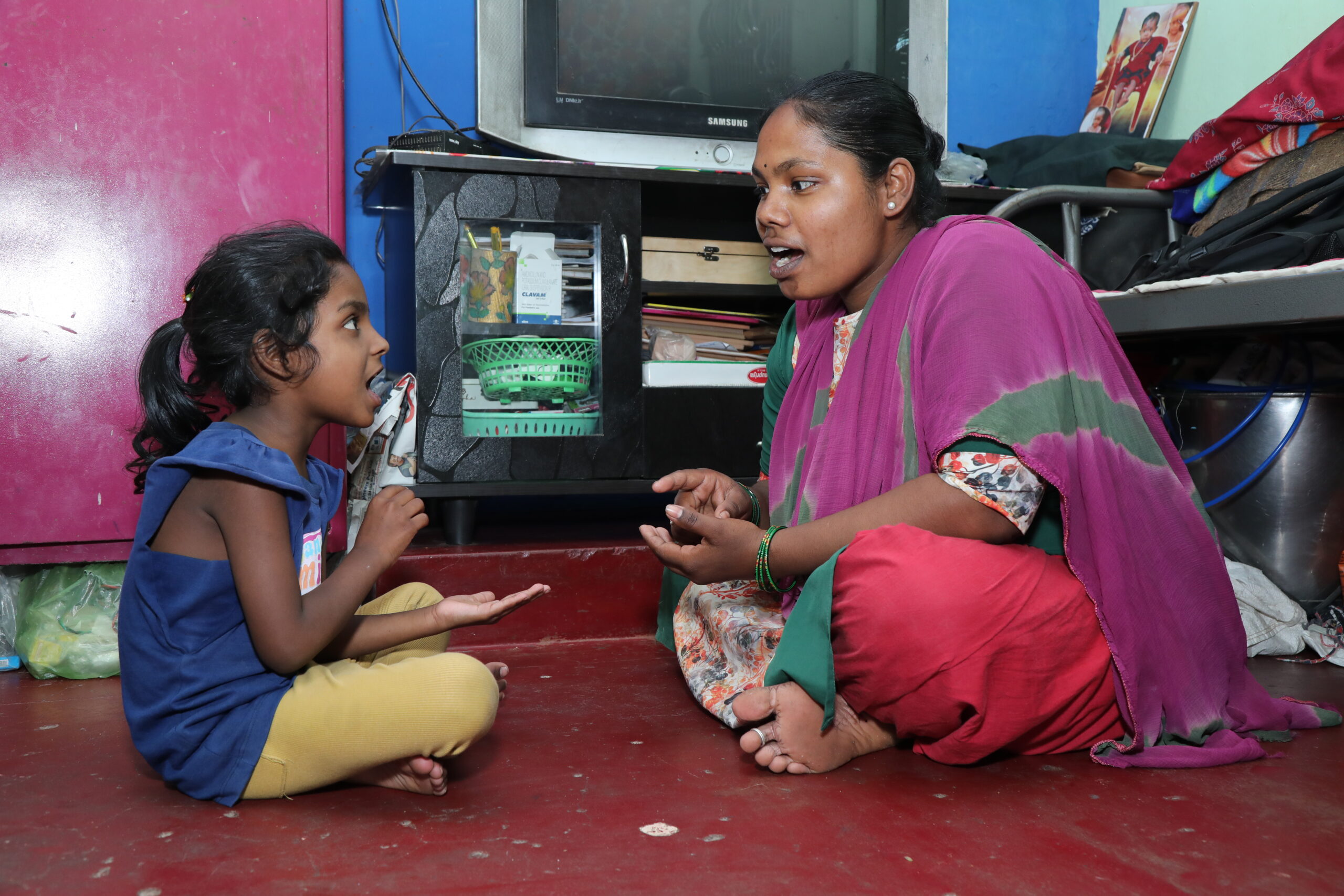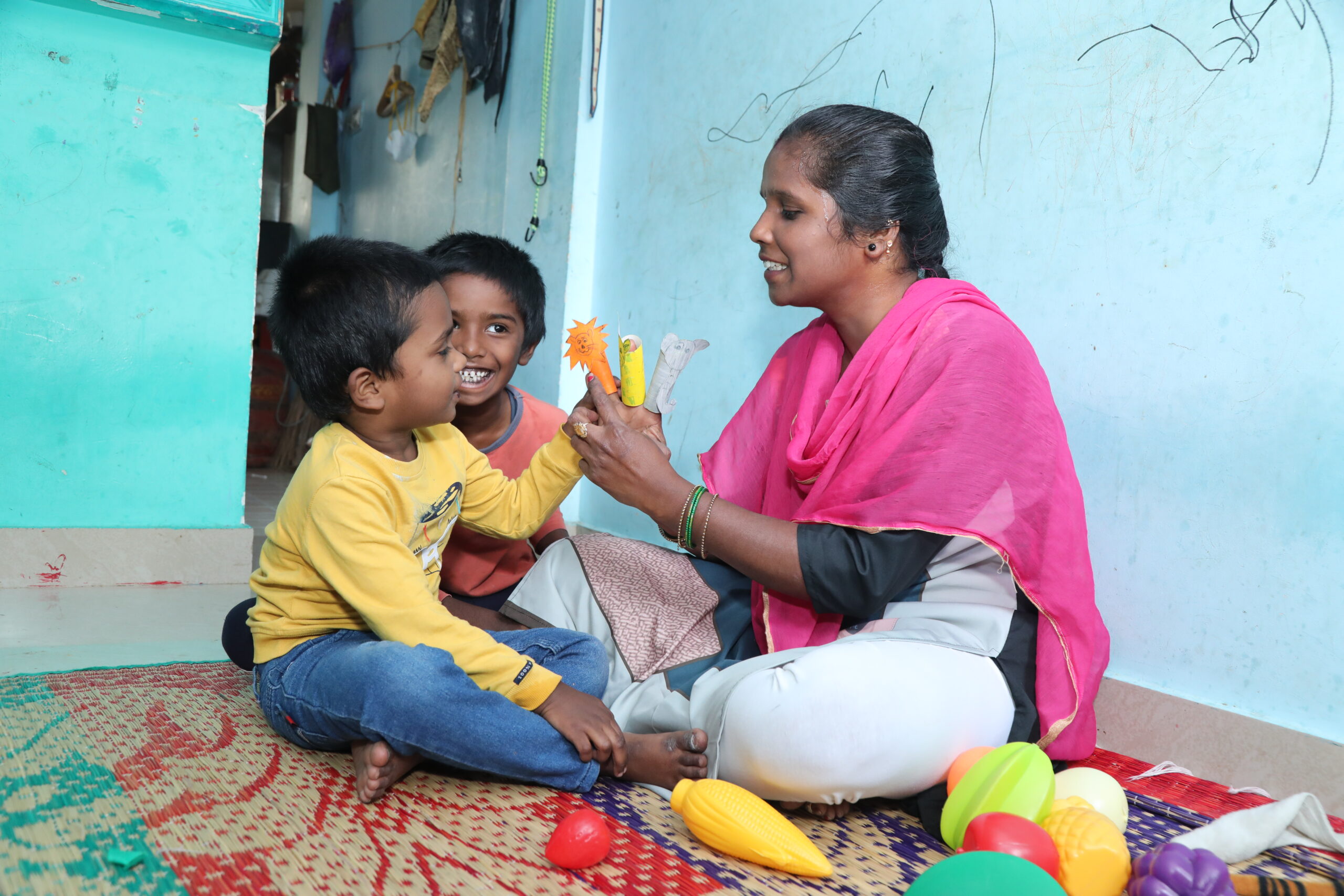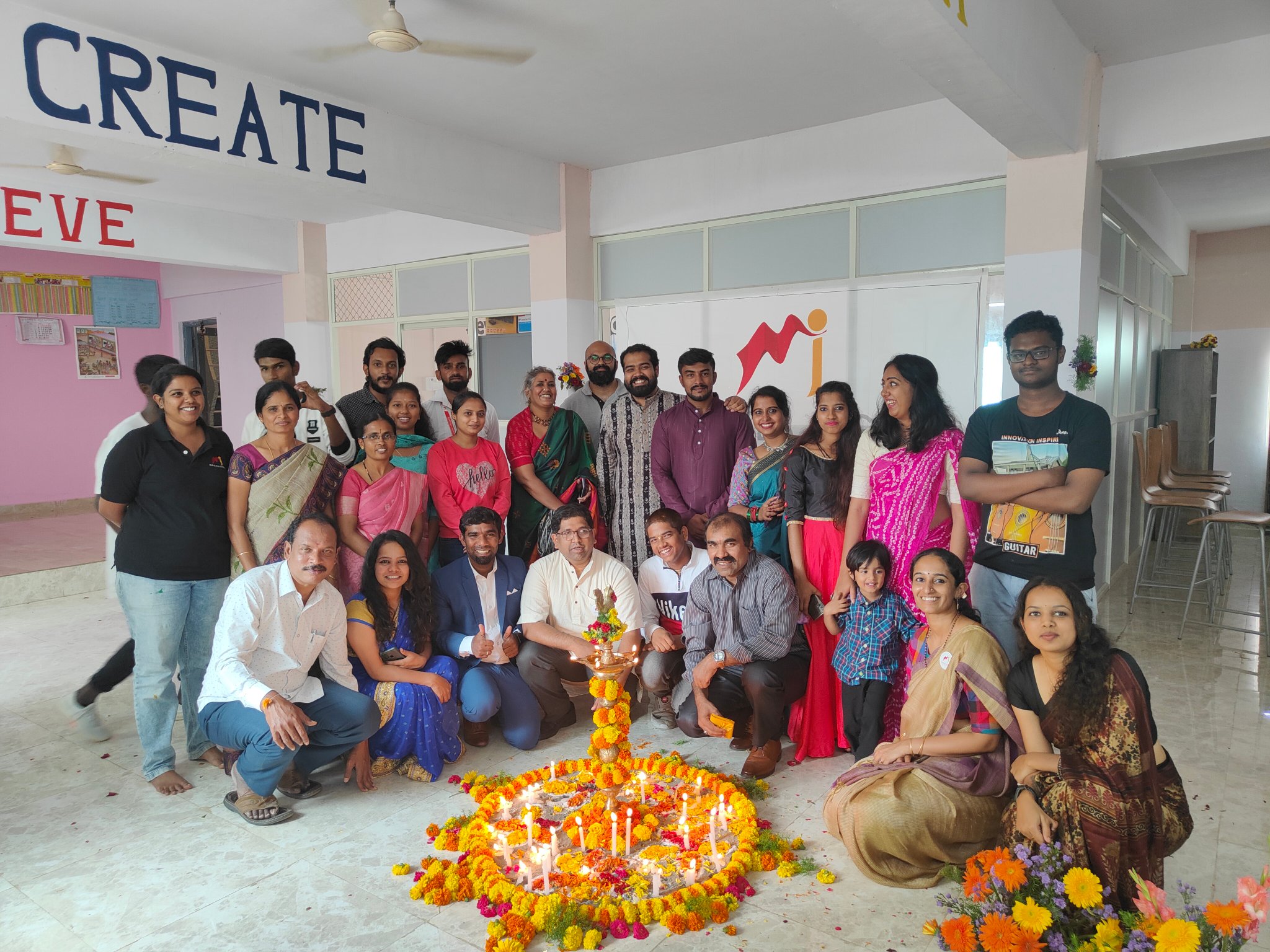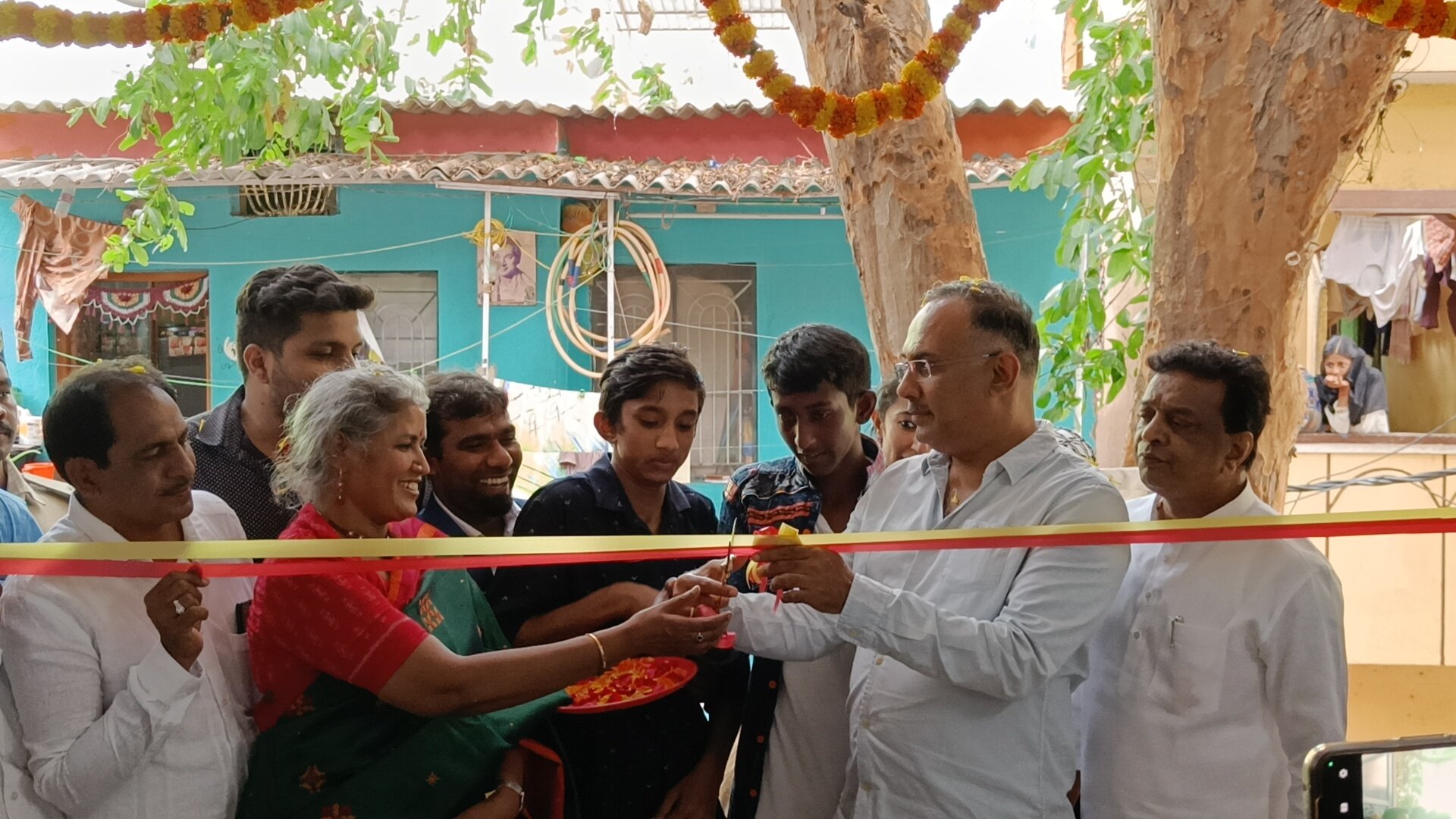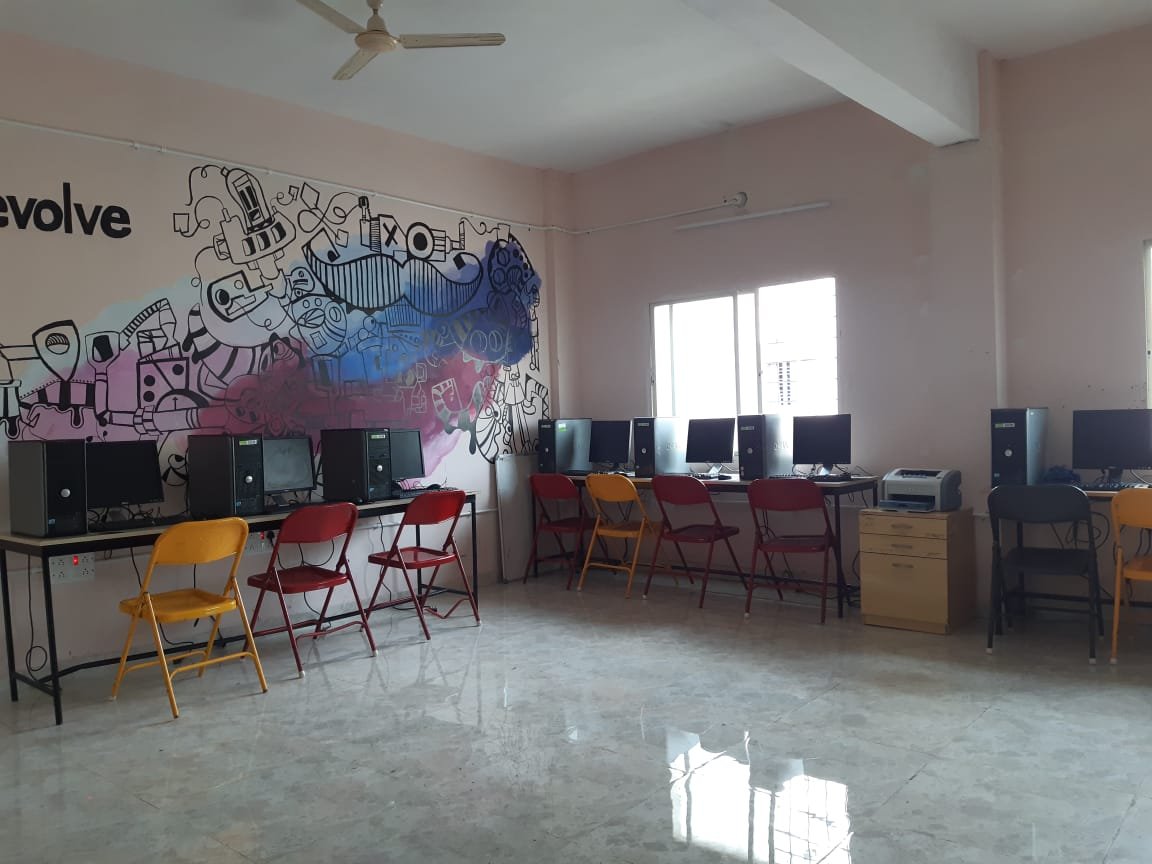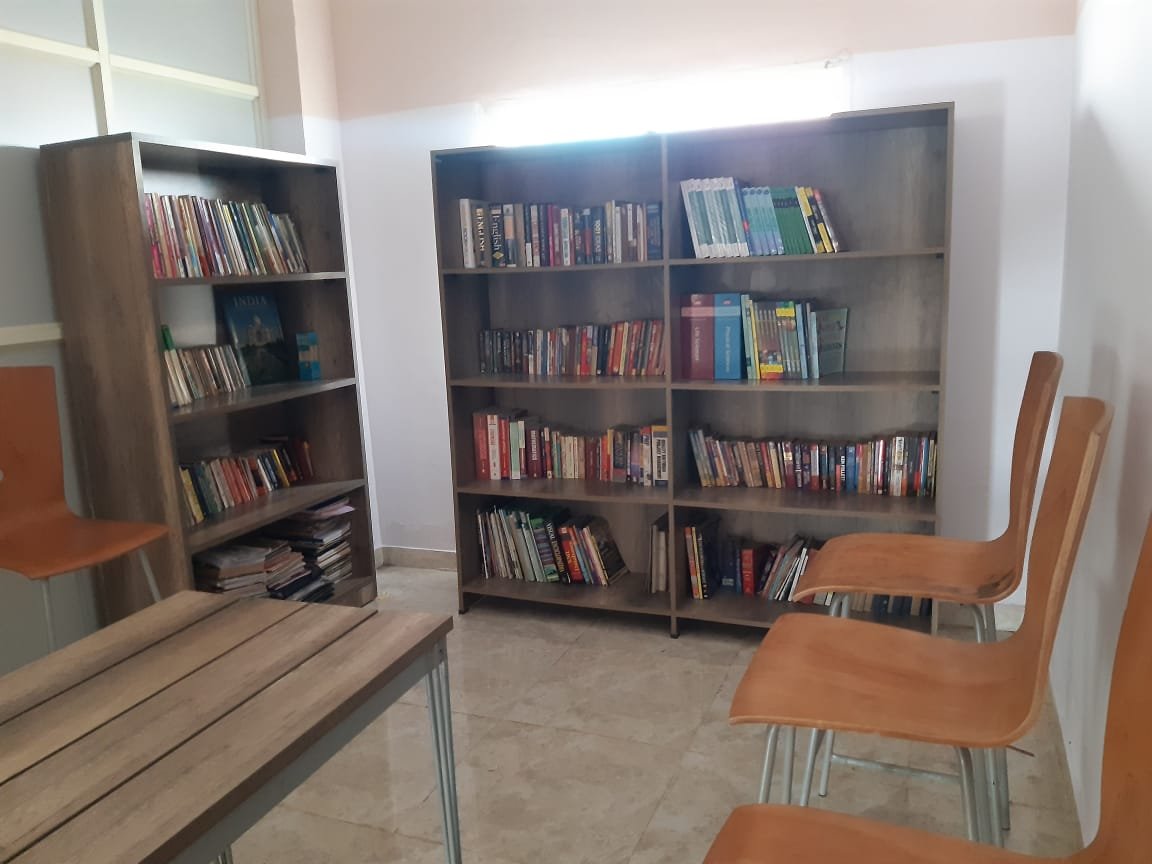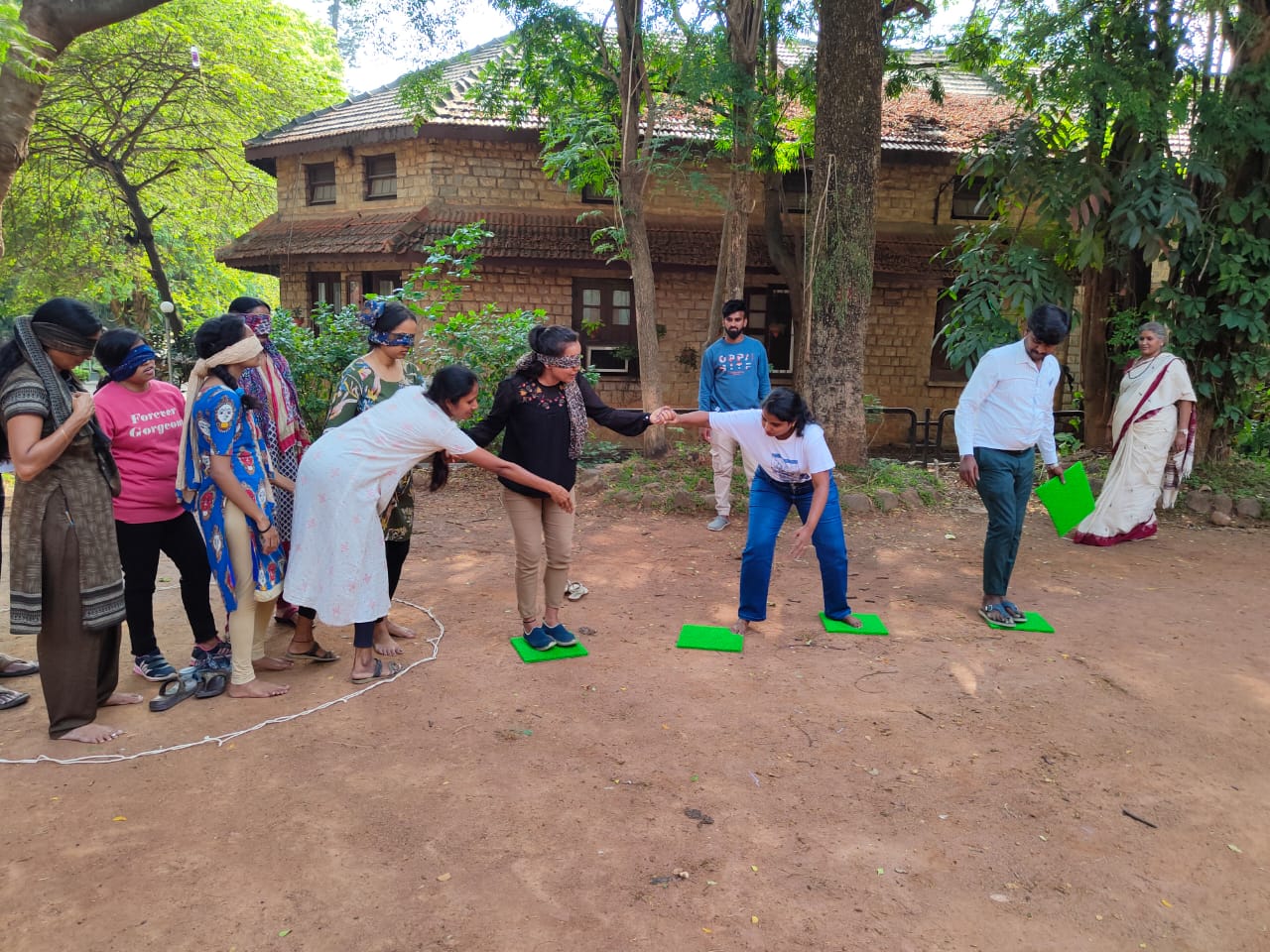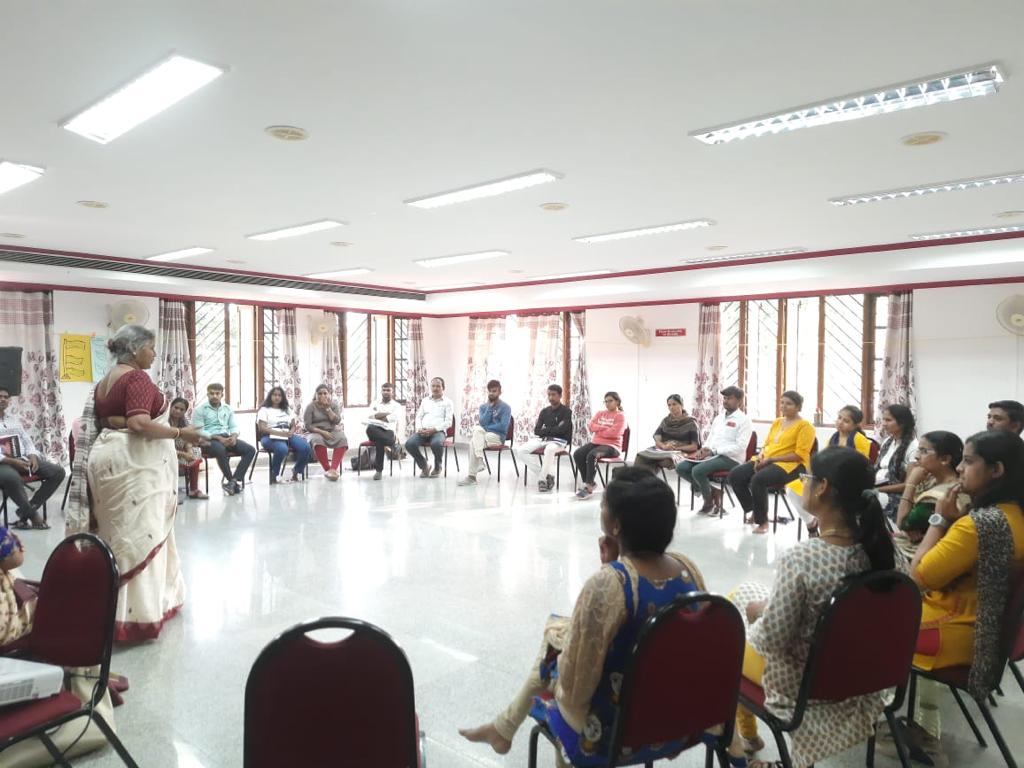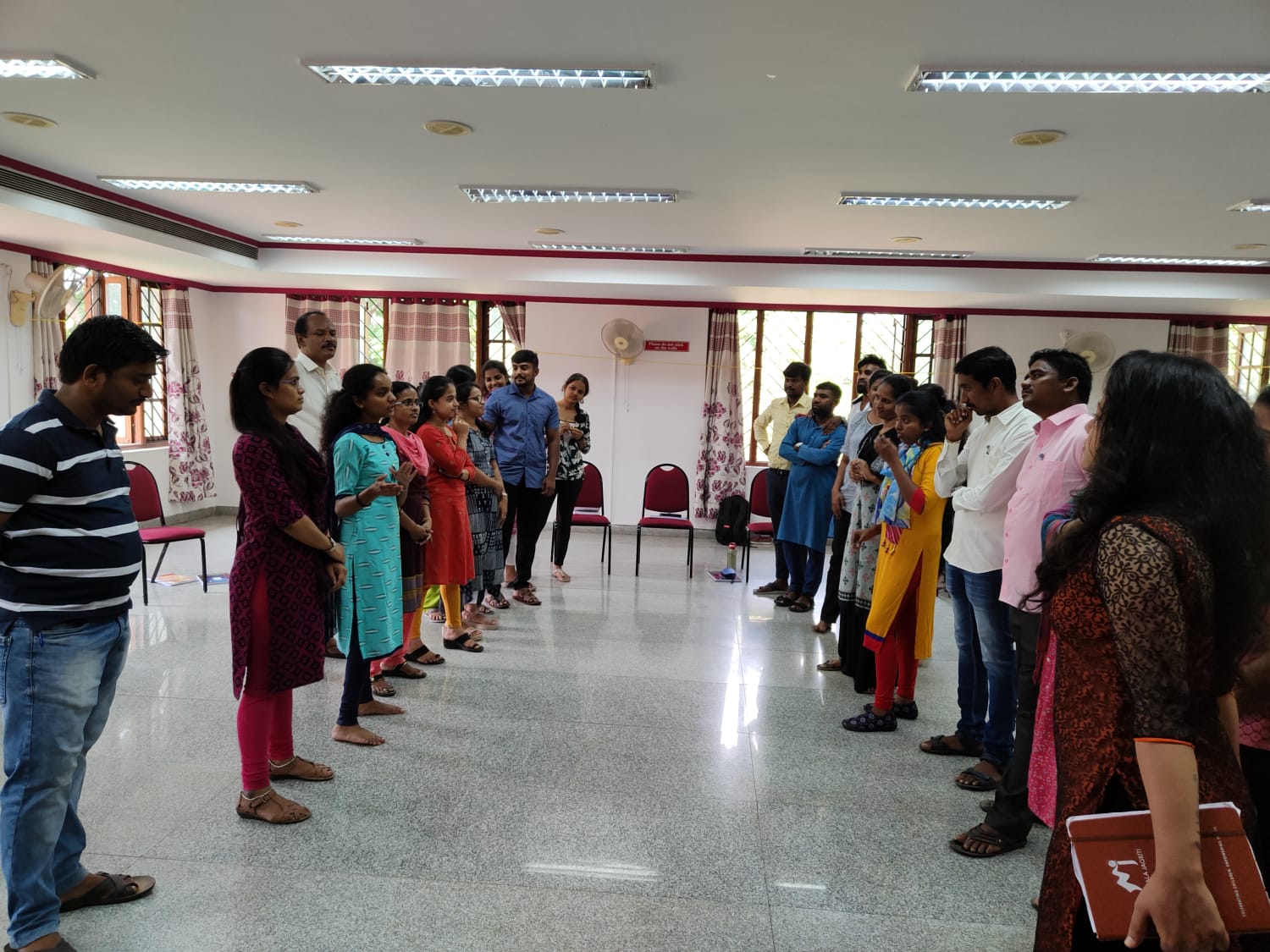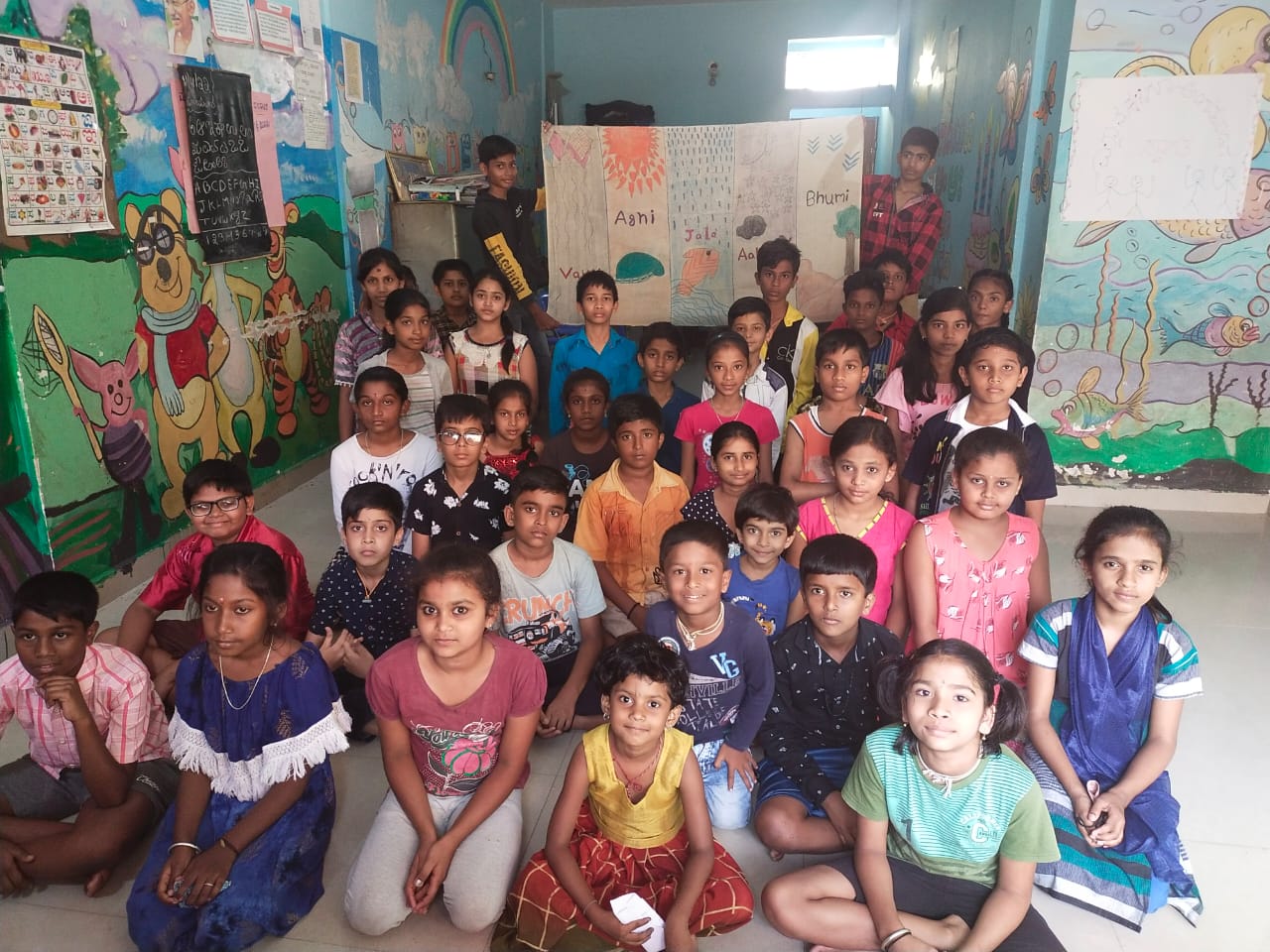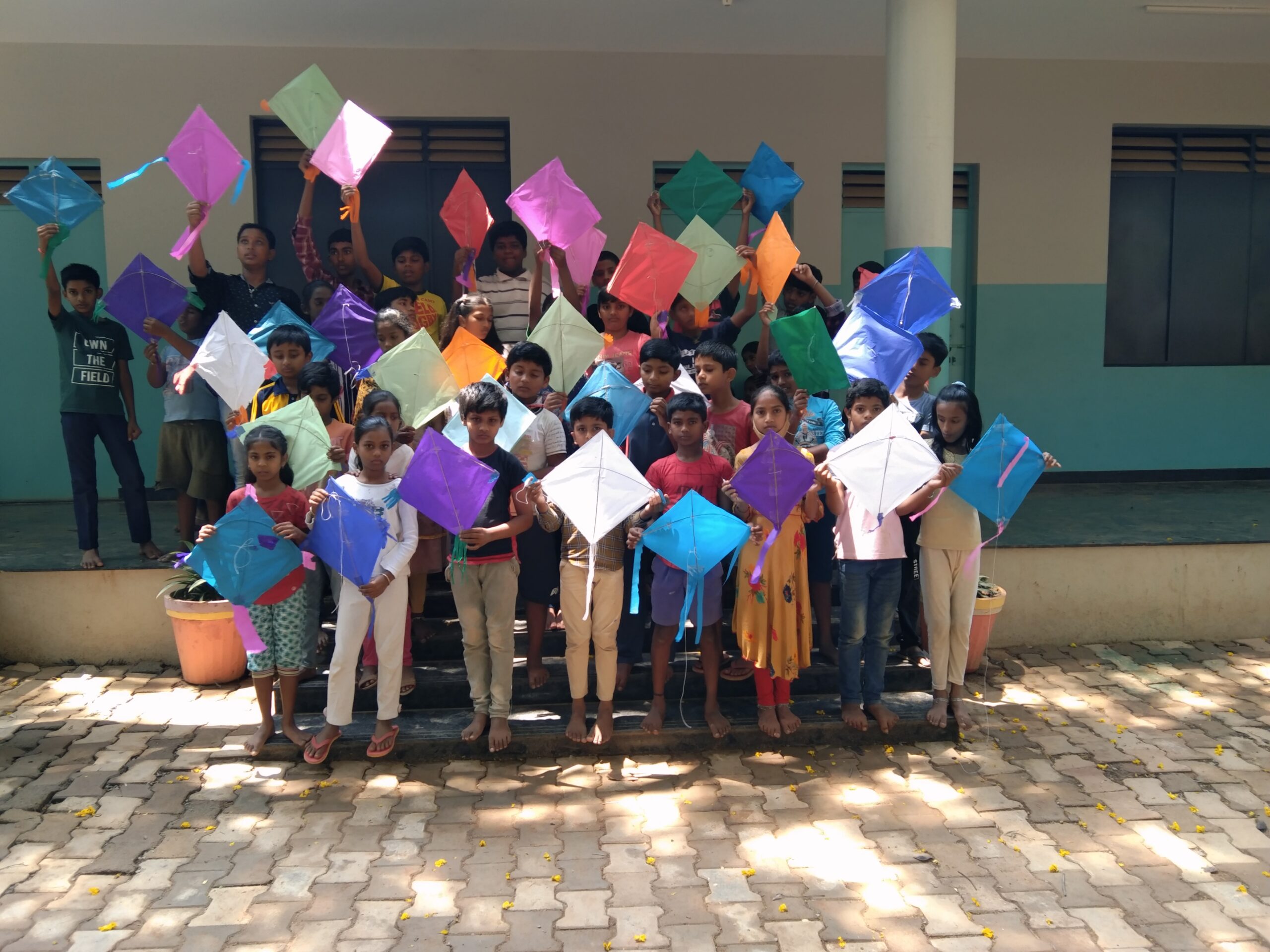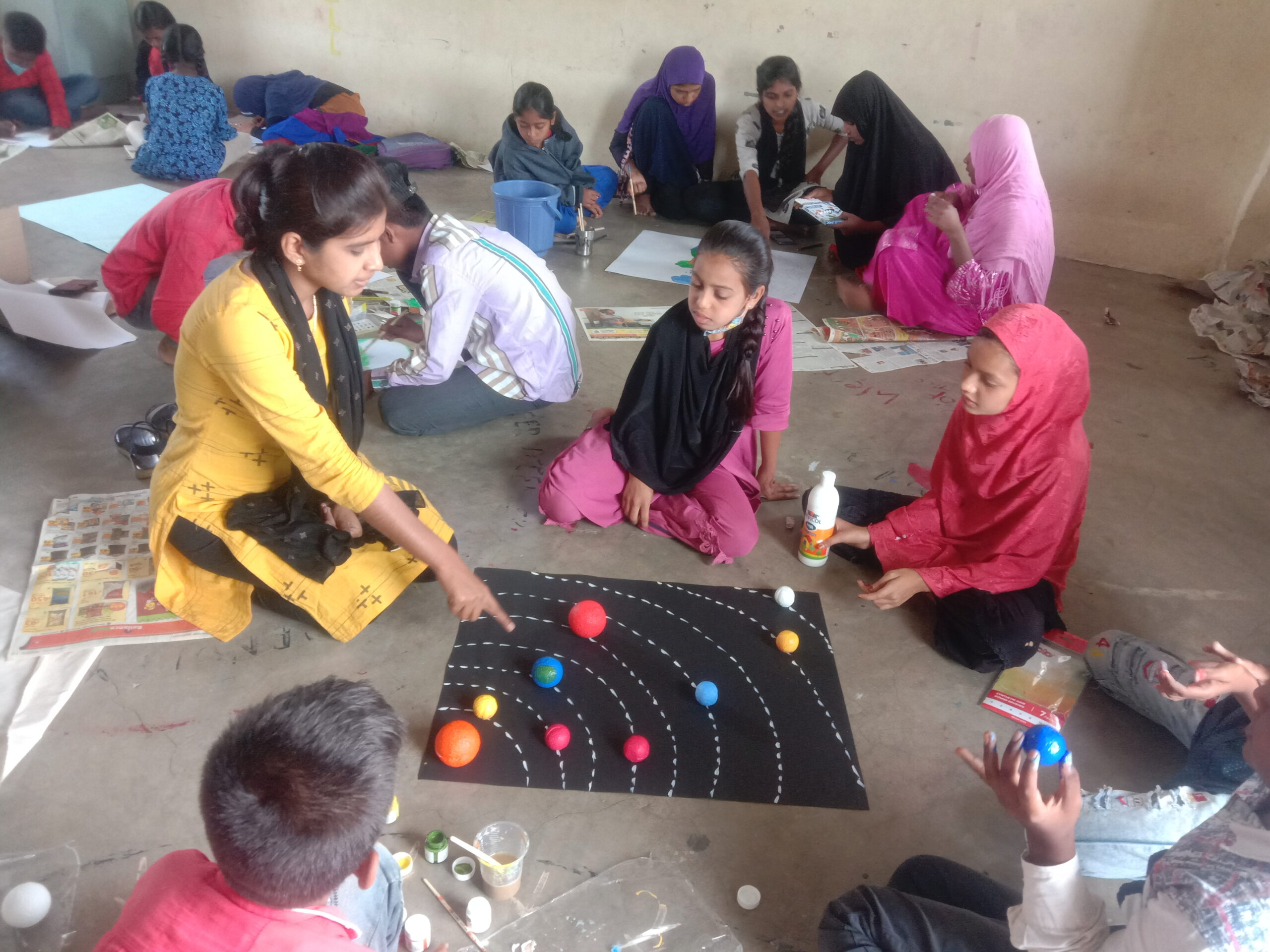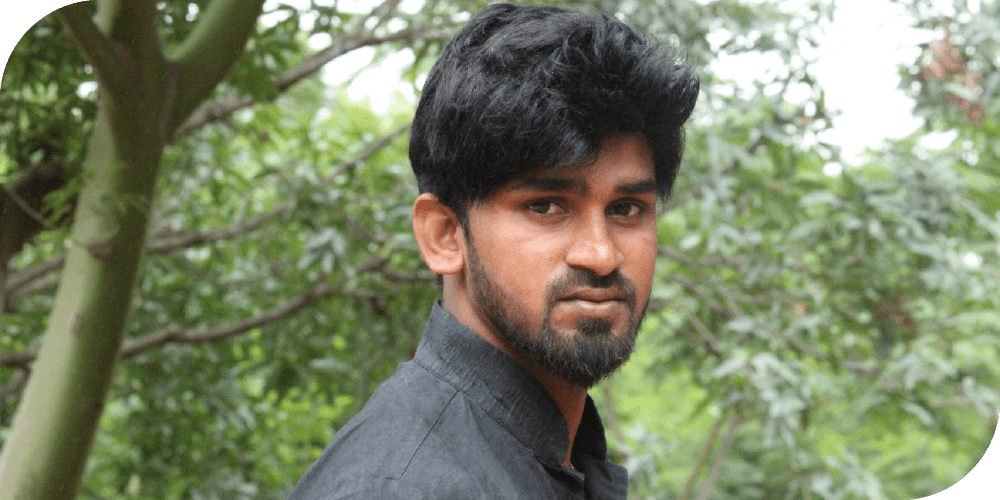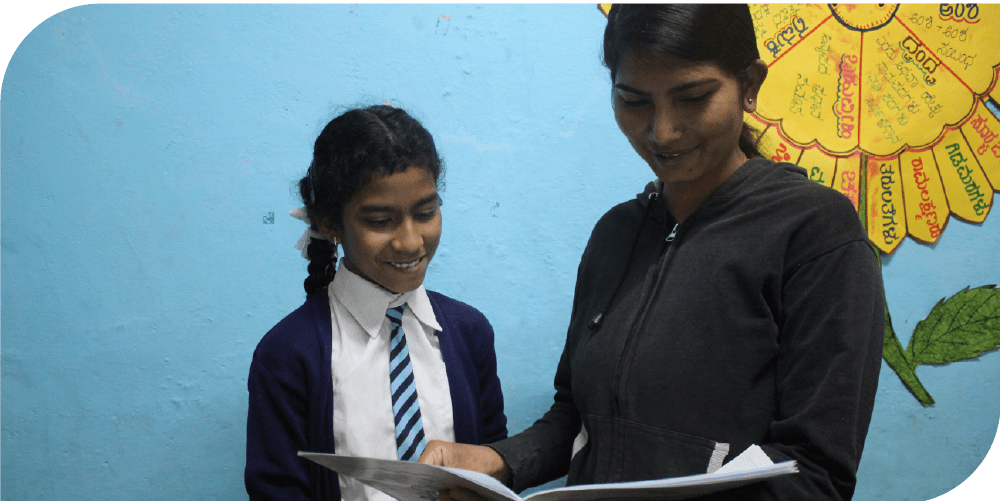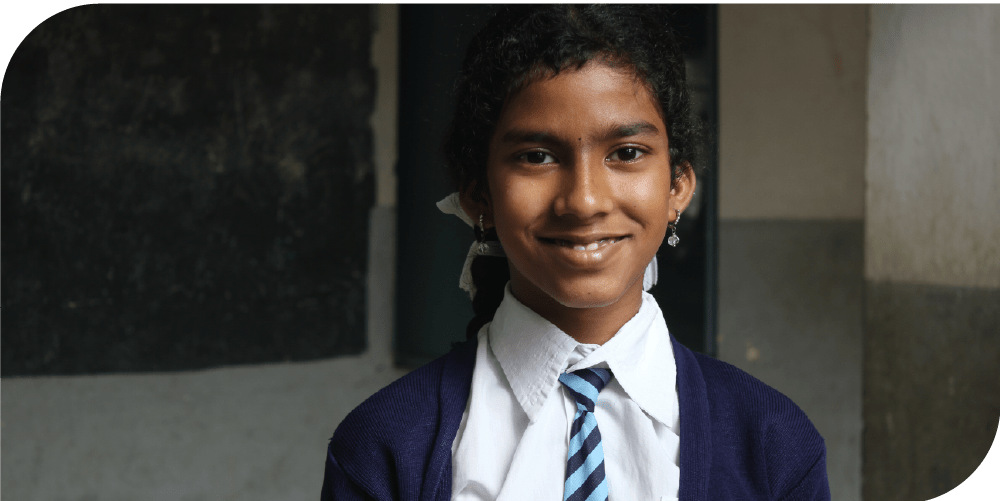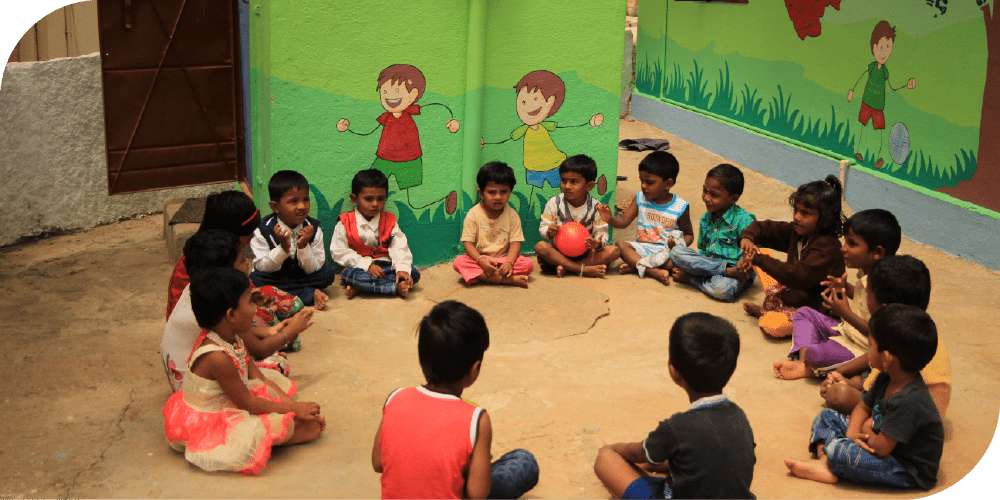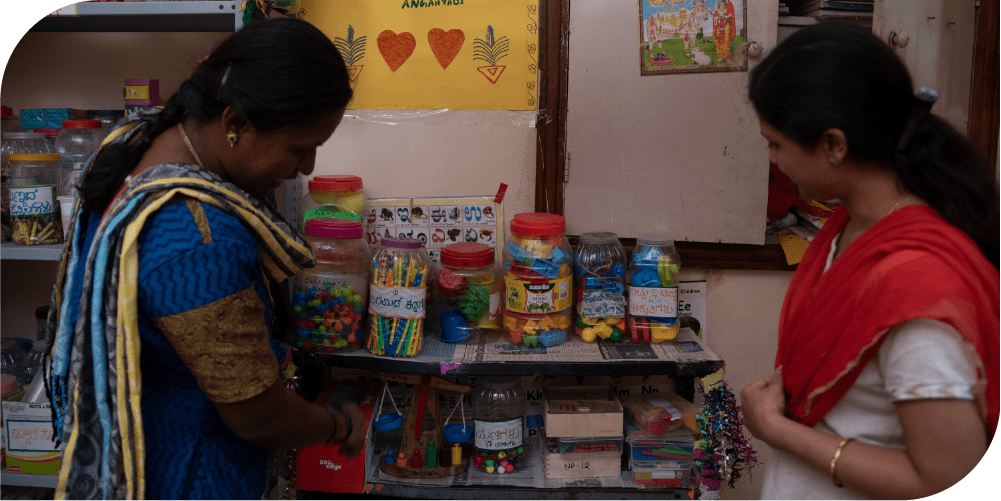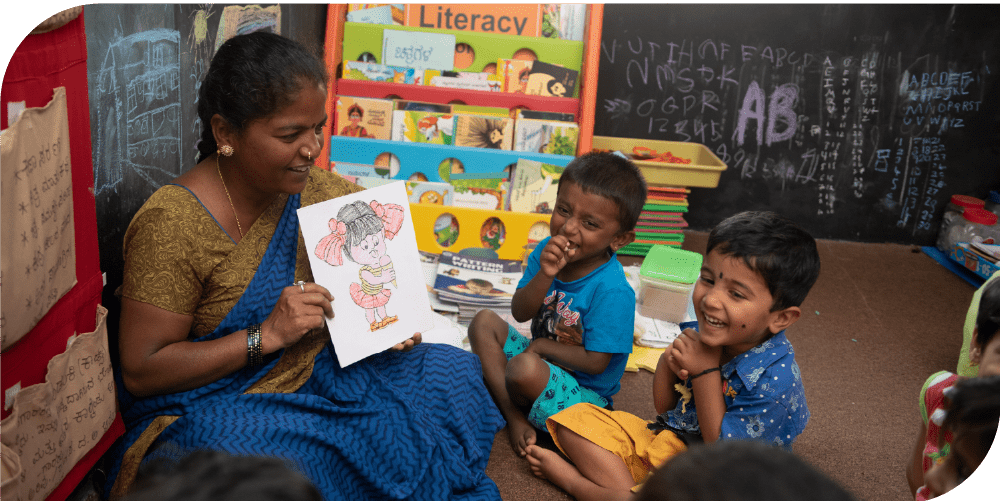Empowering Teachers for Transformative Education
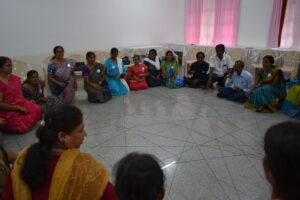
In the dynamic landscape of education, teachers play a pivotal role, as emphasized by the National Education Policy (NEP) 2020 in India. NEP 2020 advocates for continuous professional development, autonomy in the classroom, learner-centered approaches, and inclusive education. Overall, NEP 2020 recognizes teachers as central to achieving holistic development and calls for comprehensive reforms in teacher education and classroom practices to support this goal.
Embedded within Makkala Jagriti’s Holistic Development and Learning for Children (HDLC) program, “The Teacher Empowerment Program” zeroes in on teachers, recognizing them as catalysts for transformative change, fostering both their professional and personal growth.
Makkala Jagriti adopts a distinctive “ecosystem approach,” wherein all stakeholders around the child, including parents, teachers, community leaders, and others are empowered to aid the holistic development of the child. Within that, teachers have a pivotal position, and the ecosystem approach recognizes and positions teachers as central figures in a child’s developmental journey. Operating in government schools across Karnataka, the HDLC program targets children aged 6 to 14 from government schools, offering Holistic Development Sessions (through its SPICE model), comprehensive development through Foundational Literacy and Numeracy (FLN) sessions, and other practices that aid the holistic development of children. SPICE is Makkala Jagriti’s flagship model, which caters to the Socio-emotional, Physical, Intellectual, Creative, and Ethical Development of children.
Why is Teacher Empowerment Important?
Empowered teachers stay motivated, positively impacting student outcomes and school performance. In collaboration with government schools, Makkala Jagriti identified challenges faced by teachers, ranging from a lack of an encouraging environment where they can use innovative teaching methodologies to resource limitations. The Teacher Empowerment Program was conceived to comprehensively address these needs, providing tools, motivation, and ongoing support. Additionally, teachers are the primary point of contact for children in schools, and by directly working with teachers, the impact is profound and less diluted compared to other methods.
What is the Teacher Empowerment Program?
Makkala Jagriti’s Teacher Empowerment program focuses on fortifying school practices with a holistic development approach. Key sub-objectives include incorporating teaching materials, utilizing technology, promoting library utilization, leading school assemblies, initiating and supporting children’s parliament activities.
- Teacher Learning Circle: The Teacher Learning Circle is a recurring forum within the school for teachers that fosters collaborative learning and mutual support within schools. Focusing on themes such as technology, teaching-learning materials, library utilization, and other aspects that enhance the learning quality of children, the Teacher Learning Circle makes continuous learning a way of life and also results in enhanced student development.
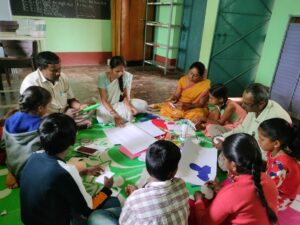
- Intensive Teacher Empowerment Workshops: Complementing the Teacher Learning Circle, the Intensive Teacher Empowerment Workshops extend its reach to teachers from different schools. It serves as a platform for the exchange of best practices, enriching the professional toolkit of participating teachers and promoting collaboration within the broader educational community. This also serves as a platform where they learn from experts in the field. This also becomes an enriching journey for the teachers on self-awareness, tapping their own strengths and touching upon practices that aid development.
A teacher from a government school in Koppal enthusiastically expressed, “Attending Makkala Jagriti’s trainings is always a highlight for us. These sessions are packed with valuable learning experiences that not only help us recognize our strengths but also make us feel appreciated and acknowledged. Moreover, they provide numerous development opportunities that undoubtedly contribute to the holistic growth of our students. These trainings have truly sparked positive changes within us, propelling us towards greater success.”
Initiatives like the Teacher Learning Circle and Teacher Workshop exemplify empowerment through collaborative learning and best practice exchange. Makkala Jagriti’s Facilitators and Coordinators are involved in continuous engagement with teachers, encouraging and leading practices within the school. These activities not only give a sense of accomplishment but also broaden the teacher’s perspective. Student-led activities, community engagement, and parent involvement contribute to overall empowerment.
The outcomes witnessed included teachers employing:
- Creative methodologies
- Actively participating in strengthening school practices
- Fostering positive relationships
- Engaging in continuous learning
Conclusion:
Makkala Jagriti’s Teacher Empowerment Program epitomizes a commitment to empowering teachers as drivers of positive change in education. By investing in teachers, Makkala Jagriti establishes the groundwork for a transformative educational experience that goes beyond traditional learning, enriching the lives of children and fostering a culture of continuous improvement.
